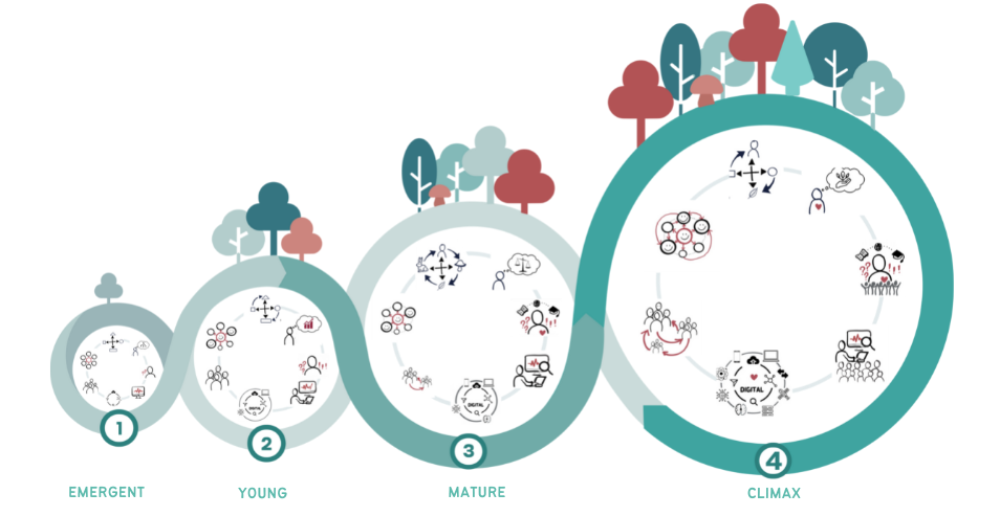Unesco Learning Ecosystem Framework
How nation-wide learning ecosystems evolve over time?
The evolution of nation-wide learning ecosystems is a complex, dynamic process best understood through the Flourishing Learning Ecosystems Evolutionary Framework. This framework, developed from extensive global research and collaboration, explores how learning environments grow, adapt, and transform over time. It offers a strategic guide for educators, leaders, and policymakers, focusing on the non-linear nature of learning, marked by phases of growth, adaptability, and resilience.
The evolution of nation-wide learning ecosystems is a complex, dynamic process best understood through the Flourishing Learning Ecosystems Evolutionary Framework. This framework, developed from extensive global research and collaboration, explores how learning environments grow, adapt, and transform over time. It offers a strategic guide for educators, leaders, and policymakers, focusing on the non-linear nature of learning, marked by phases of growth, adaptability, and resilience.
At its core, the framework highlights the importance of collaborative interdependencies and relational dynamics within learning ecosystems, demonstrating how connections between stakeholders invigorate and sustain ecosystem growth. It emphasizes that learning ecosystems are not static but are constantly evolving, shaped by various cyclical disturbances and interactions.

Built on empirical data from over 500 educational leaders across five continents, this framework is grounded in real-world experiences, analyzed and refined by experts. However, it is not a finished product but a living, evolving blueprint, encouraging continuous refinement and co-creation by stakeholders to address the ever-changing global educational landscape.
Ultimately, the Flourishing Learning Ecosystems Evolutionary Framework serves as a beacon for those committed to nurturing vibrant, adaptive, and flourishing learning ecosystems.
